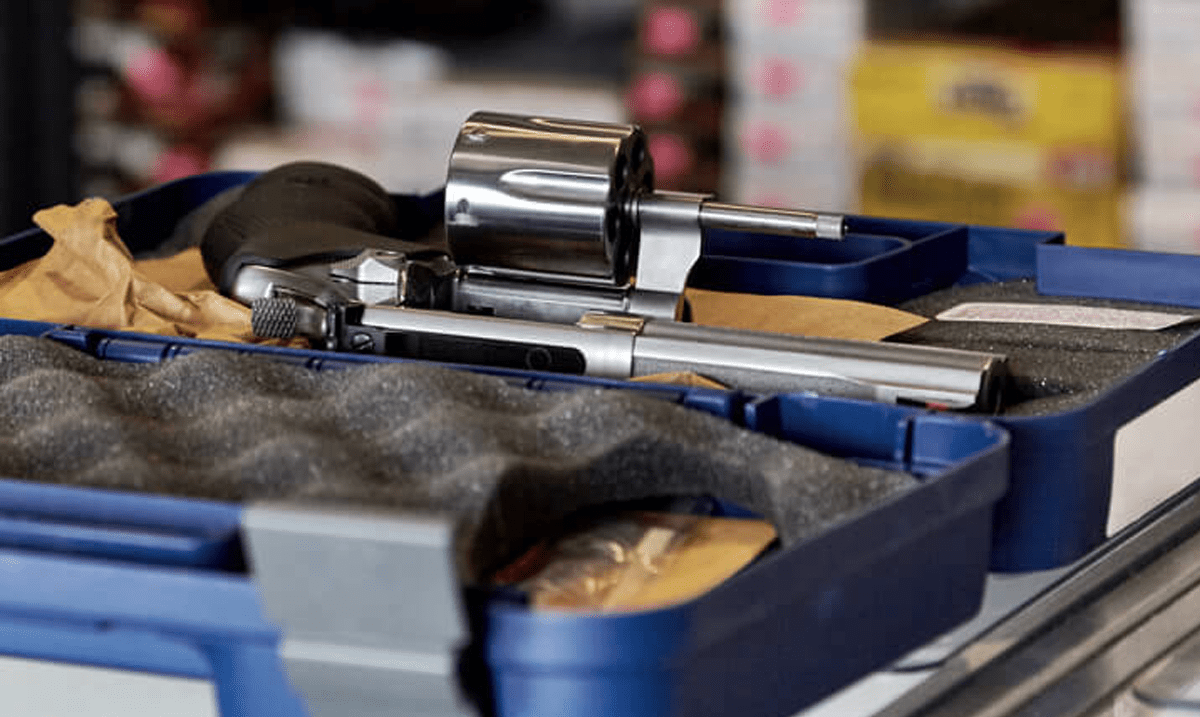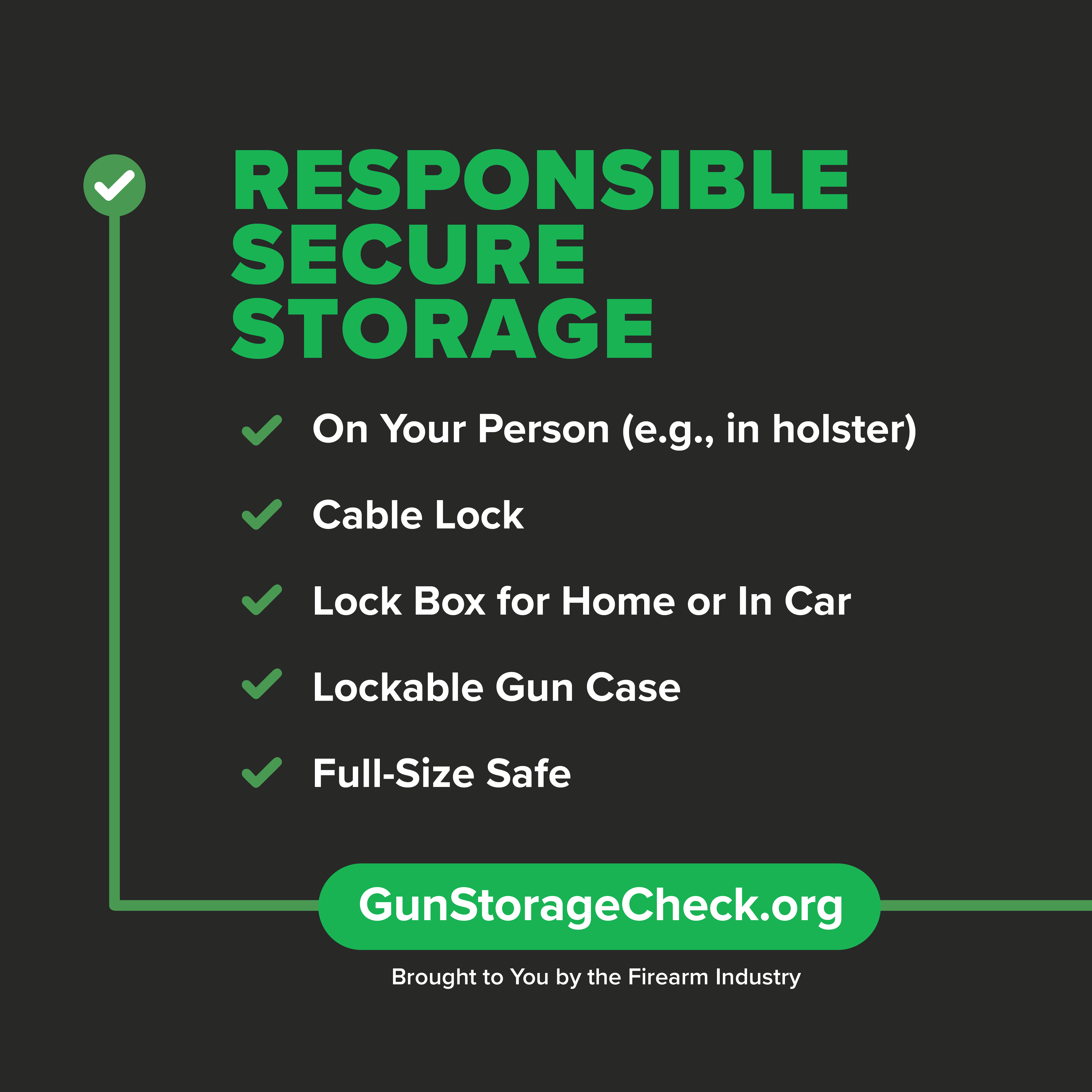 Back to News
Back to News
Image Source: AP Images/Charles Dharapak
April 9, 2024
ATF Firearm Trafficking Report: Licensed Retailers Aren’t the Problem
The Bureau of Alcohol, Tobacco, Firearms and Explosives (ATF) released a report that‘s been years in the making and the stark reality is that the Biden administration’s admonishments of the firearm industry are entirely off target.
The ATF released Volume Three of the National Firearms Commerce and Trafficking Assessment. The report is the first the ATF has published since 2000 and focused specifically on 9,700 ATF firearm trafficking investigations between 2017 and 2021. The report clearly demonstrates that for all the political bluster by the Biden administration about “rogue dealers” and the “zero-tolerance” policy by the ATF, the firearm industry isn’t the problem.
The ATF’s report found just 136 cases of illegal firearm trafficking tied to a federal firearms licensee (FFL) over a five year period. That’s just 1.6 percent of all 9,700 cases. To put that into more specific perspective, there were 134,516 federal firearms licensees (FFLs) at the end of 2021. That equates to just 0.1 percent of all FFLs being implicated in allegedly illegal firearm trafficking before President Joe Biden instituted his whole-of-government crackdown on the firearm industry.
Conversely, illegal straw purchases and private sales accounted for 80 percent of all cases. Stolen firearms represented another 25 percent of cases of illegally-trafficked firearms.
Even the ATF acknowledged that the firearm industry is doing its part in self-policing.
“The data analyzed in this report indicates that a shift in the types of trafficking channels used over the course of the last two decades has occurred,” the report summary states. “Corrupt FFL investigations represented almost 9% of trafficking investigations in the 2000 report, but now represent less than two percent of trafficking investigations.”
This means that the Biden administration is barking up the wrong tree when it comes to criminal misuse of firearms and illegal firearm trafficking. President Biden infamously maligned the firearm industry when he said from the Democratic debate stage in 2019, “Our enemy is the gun manufacturers, not the NRA, the gun manufacturers.”
Real Solutions
That statement, aside from being politically-motivated to appeal to a donor base and pandering to gun control groups that previously lobbied for gun control and now occupy The White House Office of Gun Violence Prevention, is without any factual basis. The firearm industry, through NSSF, actually partners with the ATF to prevent illegal straw purchases through the Don’t Lie for the Other Guy™ campaign. The Don’t Lie partnership campaign began back in 1999 when ATF asked NSSF to work with them to combat illegal straw purchases by helping to educate retailers to be better able to spot and stop such illegal purchases and to inform the public that it is a serious crime. The ATF’s Director Steven Dettelbach has personally participated in the press events kicking off these campaigns in U.S. cities to raise awareness that lying on the ATF background check form to buy a gun for someone who can’t do it themselves, or doesn’t want to be associated with the transfer, is a federal crime. That’s punishable by up to 15 years in prison and a $250,000 fine.
NSSF also leads the firearm industry’s partner program with ATF in Operation Secure Store®, which aims to improve security at firearm retailers to prevent the rash of smash-and-grab burglaries and robberies. That partnership includes proactively educating FFLs in identifying and quantifying vulnerabilities and risks associated with the business of firearms commerce and industry-related operations as a whole. As part of that, NSSF also matches ATF reward offers up to $5,000 for information leading to the arrest and conviction of criminals victimizing firearm retailers.
There’s more. NSSF has also backed the bipartisan FFL Protection Act, legislation that would double the statutory maximum penalty for stealing a firearm from an FFL’s inventory to 20 years from 10 years. This legislation would also impose a mandatory minimum sentence of three years for burglary of an FFL and five years for robbing an FFL. Additionally, the FFL Protection Act would criminalize the attempted theft of a firearm from a licensed importer, manufacturer, dealer or collector.
During the past 25 years, NSSF has conducted countless regulatory educational conferences, training videos, self-audits, seminars and webinars on a variety of topics but most notably ATF compliance. Many of these educational programs have been jointly done with ATF.
Zero-Tolerance
This report shows, too, that the ATF’s “zero-tolerance” policy that targets the firearm industry is misaligned to the real problems. The ATF’s focus on the firearm industry is diverting resources that should be applied to rounding up criminals, not running firearm retailers out of business for unintentional clerical errors.
The ATF’s “zero-tolerance” policy resulted in 157 federal firearms licenses revoked in 2023 following an inspection. That was up from 88 licenses revoked in 2022 and five in the last six months of 2021. Reports show that 165 FFLs were able to maintain their licenses following a revocation hearing in 2023. That was up from 83 in 2022 and just one in the last six months of 2021. Another 88 FFLs voluntarily surrendered their licenses in 2023, rather than endure the costly and painstaking process of clearing a business’s name due to what are many times minor clerical errors. That was up from 69 in 2022 and 24 in the last six months of 2021.
What’s more, ATF has “named-and-shamed” businesses that saw their licenses revoked or that ceased operations. That’s an overtly political maneuver to satisfy gun control advocates who clamor to falsely smear business owners as “bad apples” when many times it is clerical errors in records that caused them to run afoul of inspections.
‘Name-and Shame’
That’s not all. The ATF released protected firearm trace data to USA Today and Brady United in response to Freedom of Information Act (FOIA) requests. Specifically, ATF released – for the first time ever – the names of federally licensed retailers who are part of ATF’s Demand Letter 2 program. To be placed on this program a retailer must have received 25 traces within a year that were originally lawfully sold less than three years before being traced (what ATF calls “time-to-crime”). The release of this list disclosed data – who received a trace, how many traces and the time to crime – that comes exclusively from the ATF’s National Tracing Center (NTC) Firearm Tracing System (FTS). ATF’s release of this data is an obvious and transparent violation of federal law.
This is why NSSF supports the Fighting Irrational Regulatory Enforcement to Avert Retailers’ Misfortune (FIREAM) Act, introduced in the U.S. Senate by Sen. Joni Ernst (R-Iowa) as S. 3812 and in the U.S. House of Representatives by Rep. Darrel Issa (R-Calif.) as H.R. 7471. The “FIREARM” Act would create a safe harbor for federal firearm licensees (FFLs) who are at risk of losing their licenses and livelihoods due to the Biden administration’s “zero-tolerance” policy that has weaponized the Bureau of Alcohol, Tobacco, Firearms and Explosives (ATF) to revoke licenses for minor unintentional clerical errors and mistakes.
Sen. Ernst and Sen. Chuck Grassley (R-Iowa) are demanding answers from ATF for concerns of overzealous “zero-tolerance” efforts at the expense of ignoring known illegal criminal trafficking rings.
The ATF’s own data shows that the firearm industry isn’t the source of “crime guns.” The source is criminals – as NSSF has said all along. Falsely blaming the firearm industry for a lack of willingness to address crime puts our communities at risk and squanders the trust Americans place in ATF to execute their mission without political favor.
Categories: BP Item, Government Relations, Industry News, Media, Ranges, Retailers, Top Stories









